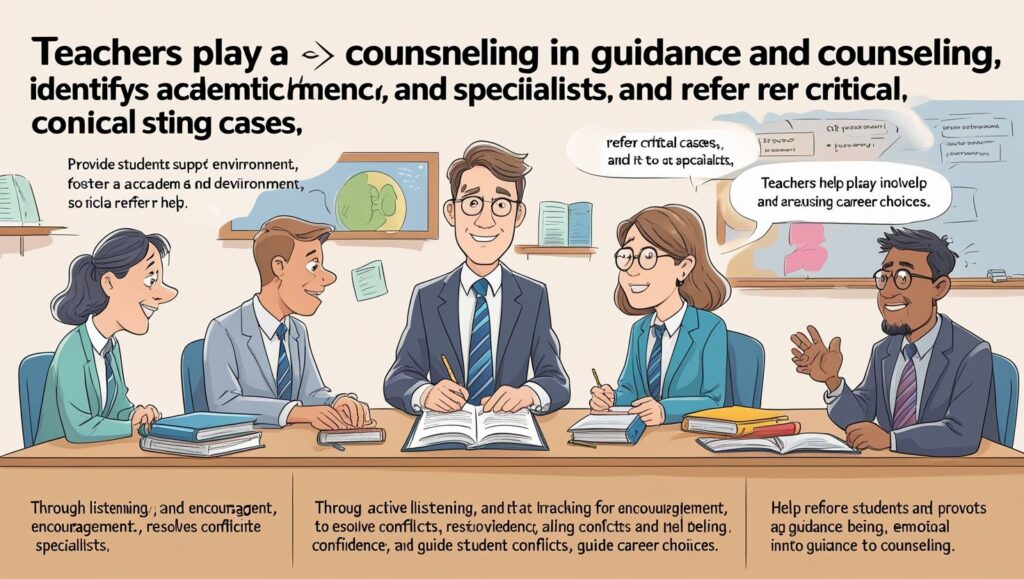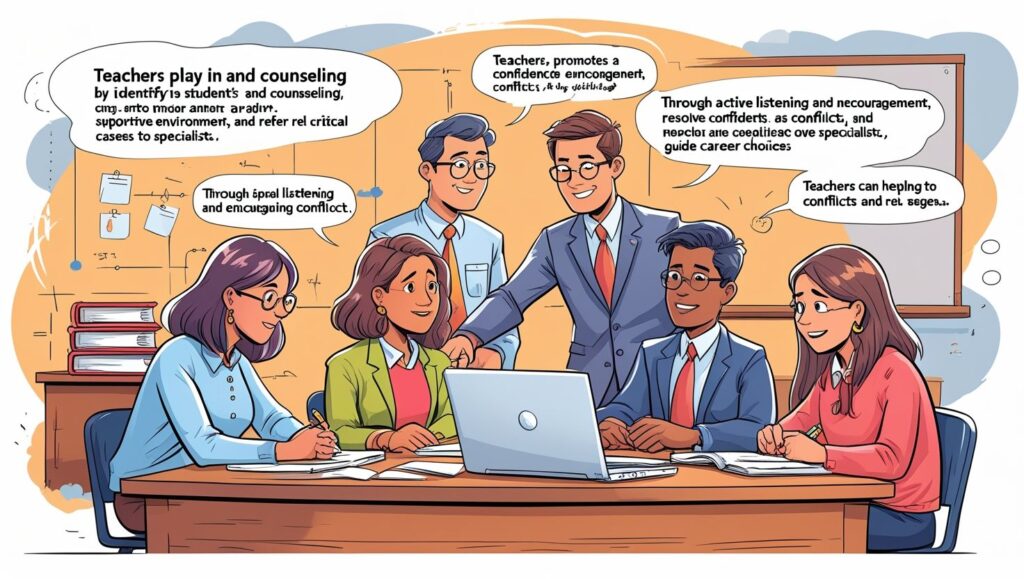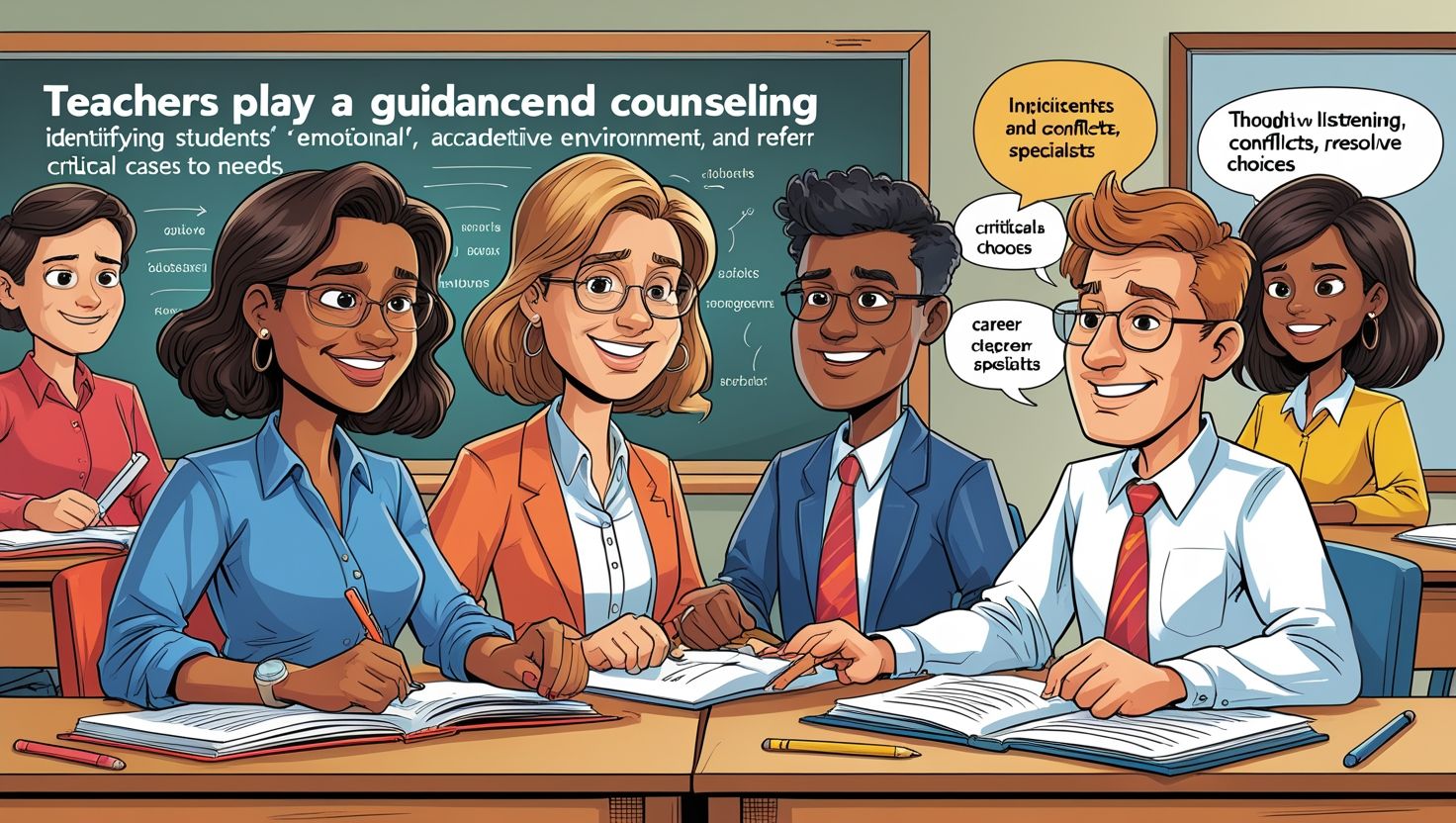Role of Teacher in Guidance and Counselling, Guidance and counselling are essential components of the educational process. They help students make informed academic, career, and personal decisions. While specialised counsellors often handle formal counselling, teachers play a pivotal role in providing day-to-day guidance to their students. Their role is not limited to delivering lessons; it extends to supporting students’ overall growth, emotional well-being, and social adjustment.
1. Identifying Students’ Needs
Teachers are in daily contact with students, which allows them to observe behaviours, academic performance, and emotional states closely. They can identify signs of learning difficulties, social withdrawal, or stress and respond accordingly. This early detection is crucial in preventing small issues from becoming serious problems.
2. Providing Academic Guidance
A teacher’s primary role in guidance involves helping students plan their studies, choose suitable learning strategies, and improve performance. They guide students on subject selection, time management, and effective study habits. Teachers also motivate learners to set realistic academic goals and work steadily towards them.

3. Offering Career Counselling
Teachers often act as the first source of career information for students. They can explain different career paths, advise on educational requirements, and encourage exploration of talents and interests. By connecting classroom learning with real-world applications, teachers help students make informed career choices.
4. Supporting Emotional and Social Development
Beyond academics, teachers provide emotional support. They help students cope with peer pressure, bullying, self-esteem issues, or family-related stress. A teacher who listens empathetically can create a safe space where students feel valued and understood. This support fosters resilience and self-confidence.
5. Referring Students to Specialists
Teachers are not professional counsellors, but they can bridge the gap between the student and a specialist. If a student requires in-depth psychological or career counselling, teachers can refer them to trained counsellors, psychologists, or social workers for expert assistance.
6. Encouraging Positive Behaviour
Through classroom management and moral guidance, teachers help students develop values such as honesty, respect, and responsibility. Counselling in this sense is preventive—it nurtures discipline, good manners, and positive relationships among peers.

7. Collaborating with Parents
Teachers often act as a link between school and home. They share observations about a student’s academic and social progress, suggest strategies for improvement, and involve parents in supporting their child’s development.
8. Promoting a Supportive Environment
A teacher’s guidance role includes creating an inclusive, non-judgmental, and motivating learning atmosphere. Such an environment reduces stress, promotes active participation, and encourages students to express themselves freely.
Conclusion
The role of a teacher in guidance and counselling is multi-dimensional—spanning academic advice, emotional support, career orientation, and personal development. While formal counselling may require specialised training, the everyday guidance offered by teachers has a lasting impact on students’ lives. By combining empathy, observation, and practical advice, teachers become vital partners in shaping not only educated minds but also balanced, confident, and capable individuals.

This post will help the internet visitors for building
up new blog or even a blog from start to end. https://glassi-India.Mystrikingly.com/